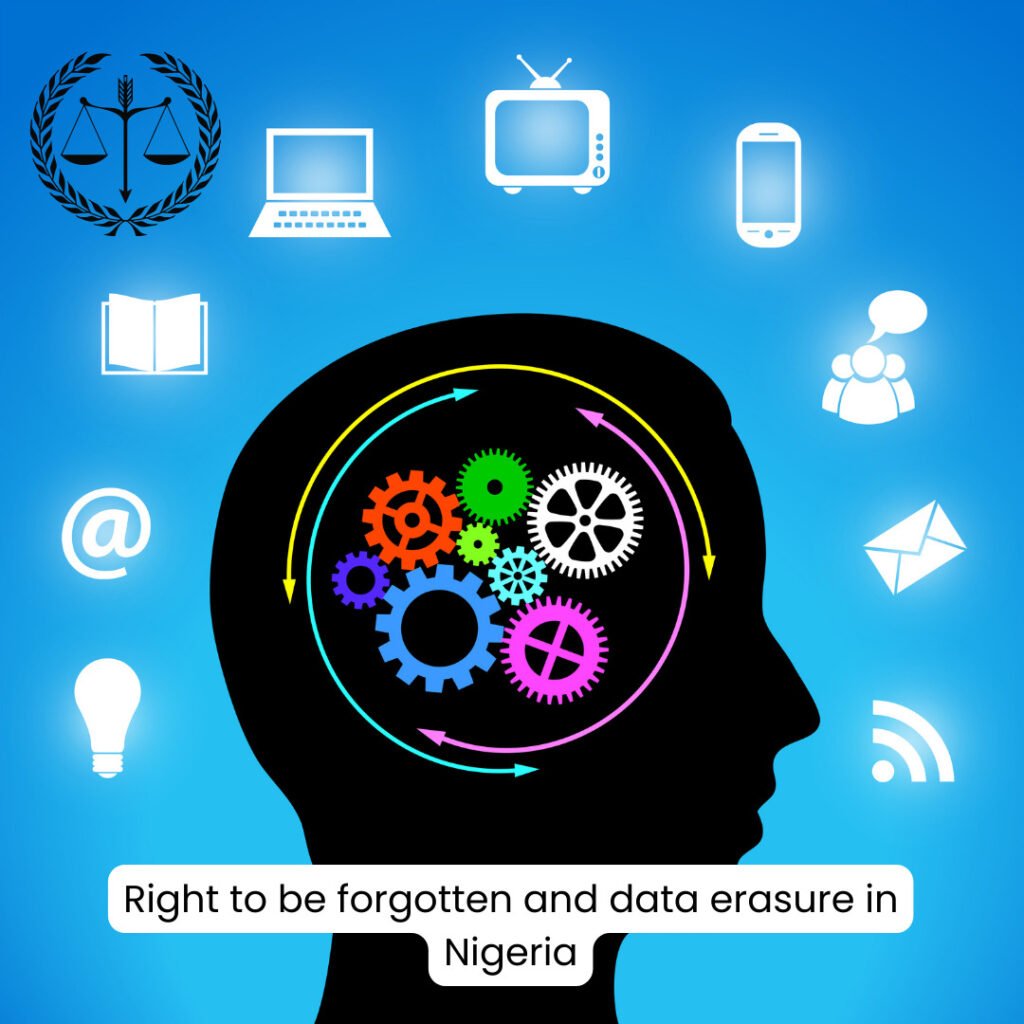Right to be forgotten and data erasure in Nigeria
In today’s interconnected digital world, the vast amount of information available online raises questions about the right to control one’s personal data and digital footprint. The concept of the “right to be forgotten” and the practice of data erasure have gained prominence as individuals seek to manage their online presence and protect their privacy. In Nigeria, a nation embracing digital transformation, the right to be forgotten and data erasure have significant implications for personal autonomy, privacy, and data protection. This article explores the realm of the right to be forgotten and data erasure in Nigeria, examining their significance, legal framework, challenges, and implications for individuals, businesses, and the broader digital landscape.
The Significance of the Right to be Forgotten
The right to be forgotten empowers individuals to request the removal or deletion of specific personal information from online platforms, search engines, and digital archives. It holds significance for various reasons:
- Privacy Enhancement: The right to be forgotten allows individuals to manage their digital identity and prevent the indefinite retention of personal data.
- Digital Autonomy: Individuals can exercise greater control over the information associated with their name, safeguarding their reputation and online presence.
- Data Protection: Enforcing the right to be forgotten aligns with data protection principles, ensuring that personal data is not stored or used without consent.

Legal Framework: The Nigerian Data Protection Regulation (NDPR)
The Nigerian Data Protection Regulation (NDPR) serves as the primary legal framework for data protection in Nigeria. While it emphasizes principles such as data minimization and consent, it does not explicitly include the right to be forgotten. However, the NDPR acknowledges the importance of data subjects’ rights and data erasure, which can be interpreted as encompassing elements of the right to be forgotten.
Challenges in Implementing the Right to be Forgotten
Implementing the right to be forgotten and data erasure presents challenges:
- Balancing Rights: Balancing the right to be forgotten with other rights, such as freedom of expression and access to information, can be complex.
- Technical Practicalities: Ensuring effective data erasure across various online platforms and databases requires technical coordination.
- Cross-Border Impact: The global nature of the internet raises challenges when enforcing data erasure requests that involve international platforms.
Implications and Opportunities
The right to be forgotten and data erasure have implications for individuals, businesses, and the broader digital landscape:
- Individual Empowerment: Enforcing the right to be forgotten empowers individuals to take control of their digital identity and manage their online presence.
- Business Compliance: Organizations must establish mechanisms to honor data erasure requests and comply with data protection regulations.
- Digital Ethics: Embracing the right to be forgotten aligns with ethical principles of privacy, respect, and responsible data usage.
Charting the Path Forward
The future of the right to be forgotten and data erasure in Nigeria involves:
- Enhancing Data Protection Laws: Strengthening data protection regulations to explicitly include provisions for the right to be forgotten and data erasure.
- Public Awareness: Educating individuals about their rights and options for managing their online presence.
- Collaborative Efforts: Collaborating with digital platforms, businesses, and data protection authorities to develop standardized data erasure practices.
Conclusion
The right to be forgotten and data erasure are critical components of modern data protection and privacy practices. By recognizing and enforcing these rights, Nigeria can create a digital landscape that values individual autonomy, privacy, and responsible data usage. As Nigeria continues its digital journey, a proactive and comprehensive approach to the right to be forgotten and data erasure will contribute to a digital ecosystem that respects individuals’ rights, fosters ethical data practices, and positions Nigeria as a champion of digital autonomy and data protection on the global stage.